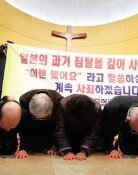[Editorial] Unqualified
It is said that former presidential chief policy advisor, Kim Byung-jun, is highly likely to become the next deputy prime minister and minister of education. He has reportedly told his acquaintances, Maybe I am too young (52 years old) to be a prime minister, but I want to be a deputy prime minister for education. Except for the fact that he himself wants that job, we find no reason why he should be the head of education authorities. He used to be a professor of public administration, but he is not someone that has any experience in educational administration. The nearest reason available might be that since he joined the Institute of Local Government Practices led by Roh Moo-hyun, then a politician, in 1993, he has been one of the closest aides of President Roh.
When Kim stated last July that he would create a real estate scheme that is as difficult as the Constitution to amend, President Roh excitedly cited the news article reporting his remark as the best article. Since then, real estate prices have soared, giving more sufferings to the people, and the ruling party lost miserably in the local elections. If the President, despite all that, does not call Kim to account for the policy failure but chooses to appoint him as the deputy prime minister for education, we cannot help worrying about the Presidents perception of reality.
The education issues, along with the real estate issues, might create a huge stir in society, said President Roh back in last July. The essence and practical effects of education policies need to be thoroughly reviewed. His remark was interpreted as if the current leveling-down education in seeking of equality was not enough, he was even trying to formulate a more radical policy. If Kim deals with the education issues in a way that matches what President thinks, chances are that there might be an education bomb. Kim has a track record of having threatened the people who complained about a drastic increase of real estate taxes that a tax bomb is yet to come.
Not to mention the real estate policies, all the policies that Kim has formulatedrelocation of administrative capital, regionalization, decentralization and innovation of government agenciesended up a failure. Now is he seeking to ruin education?
In 2004, Kim, as the chairman of the government innovation and regional decentralization committee, adopted the Regional Talent Recruitment Target system, under which 20 percent of those who pass the Senior Civil Service Examination and Senior Foreign Service Examination are selected from regional applicants. If he becomes the deputy prime minister for education, this kind of mechanical balance might become the goal of education policies. In particular, he might push for standardization of national universities under the pretext of restructuring. He might also take a harder line in dealing with controversial policies, such as restraining establishment of foreign language high schools and independent private high schools and promoting public-run innovative schools. If this brings about a leveling-down of secondary education and a failure of excellence education, the nations future will only be more dismal.







